This investigation by The New Arab was developed with the support of JournalismFund Europe. The Shift is a co-publisher, adapted by Caroline Muscat.
As the sun hung low over the Nile, casting golden ripples across the water, the air at Lake Nasser carried whispers of wings overhead, the soft rustle of migratory birds seeking refuge during their epic winter journey from Europe to Africa.
In January 2024, it was here, in these seemingly tranquil landscapes, that the tangled web of illegal bird hunting began to unravel – a world where beauty and brutality collide.
Evidence was everywhere and it led back to Maltese hunters.
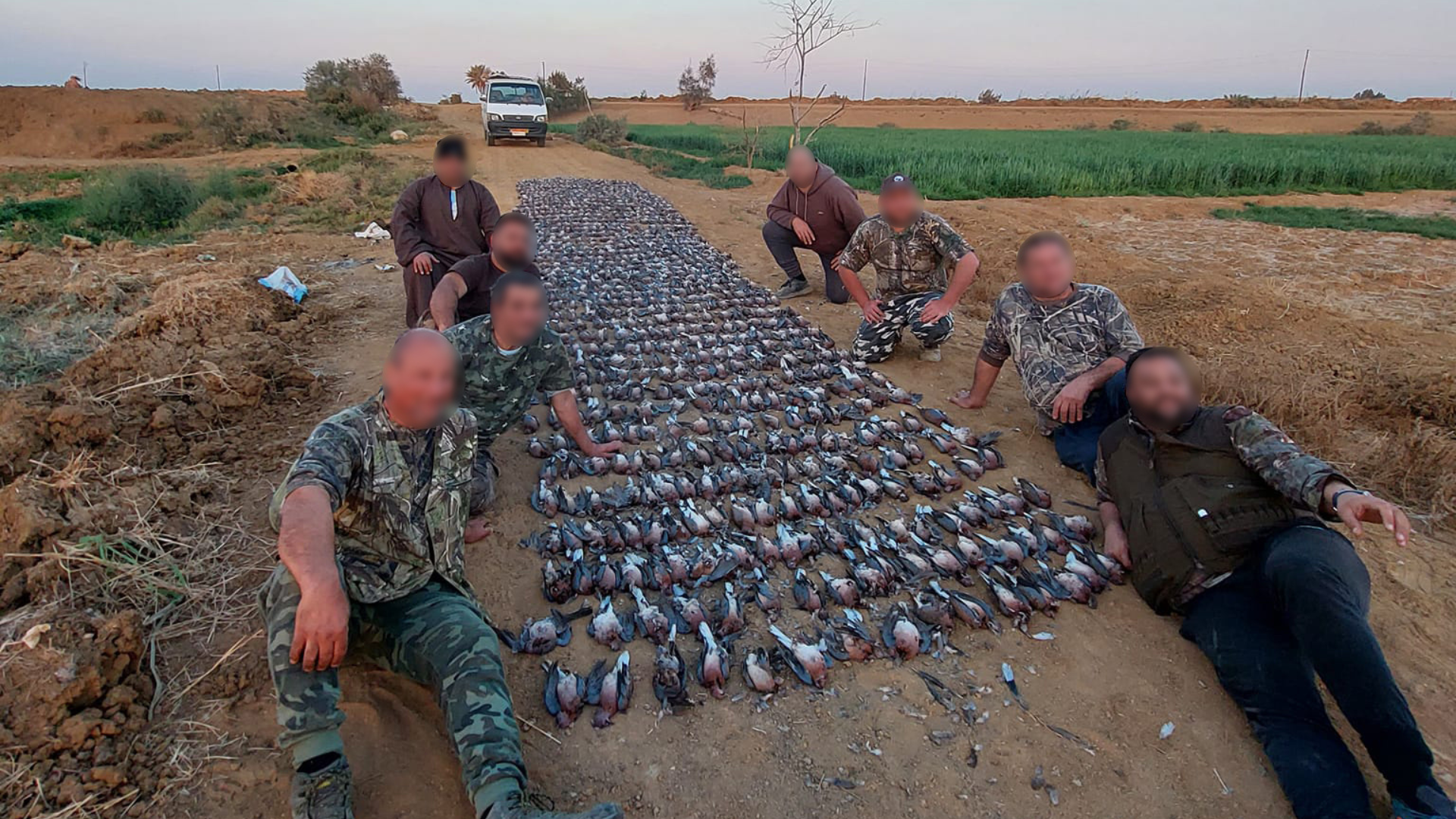
Maltese hunters with their local guide in Fayoum. Published on 6 February 2024. Photo: Facebook.
Hashim Morsi, an Egyptian bird watcher, recalled a shocking find in 2017. He discovered around 7,000 dead birds along an approximate 15km stretch near Port Said. Many bore the hallmarks of Maltese poaching: plastic wrapping bearing text in Maltese.
Mahmoud*, a veteran hunting guide, said, “Italian hunters usually want ducks. Maltese hunters are the ones who want different kinds. The Maltese hunters take everything in sight… even stray dogs if they get the chance.”
From Aswan, our investigation took us deeper into Egypt’s rural heartlands, tracing a shadowy trail to Fayoum and beyond. There, we uncovered the digital footprints of Maltese hunters flaunting their prized trophies.
In a small café overlooking Lake Qarun, we met Moustafa*, a hunting guide whose words were both candid and chilling.
“Flamingos and spoonbills—those are the birds they like,” he said. “You could be sitting by the water, and suddenly a gazelle shows up – you take the shot.’’
He also revealed the methods Maltese, as well as Italian hunters, use to smuggle the shot birds back home. “They go to Malta, not Italy. Sometimes, they go to Turkey.”
This investigation exposed the cracks in international conservation efforts. The environmental stakes are high in Egypt, whose skies are populated by nearly 500 migratory and resident bird species.
Millions of euro flowed from EU conservation funds to protect these species, only for them to be gunned down by Europeans in Egypt. This is the story of a network that thrives on the fringes of legality.
This investigation, which includes exclusive accounts from conservationists and hunting trip organisers as well as public records of raids and arrests, highlights the urgent need for international cooperation to uphold global conservation commitments.
On the ground in Egypt
Maltese hunters typically enter Egypt on standard tourist visas. Local hunting organisers and intermediary companies facilitate the process of securing permits to bring firearms and ammunition into the country, allowing each hunter up to 500 cartridges.
International actors also help enable illegal bird hunting in Egypt. A recurring figure in these networks is Kenneth ‘Kajju’ Ellul, the relative of the MEP candidate Steve Ellul, now CEO of Infrastructure Malta.
‘Kajju’ published many photos on Facebook while hunting in Aswan.
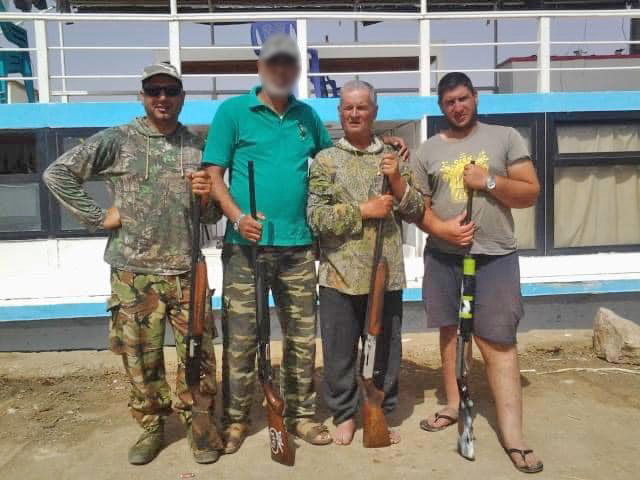
Kenneth Ellul (right) and Mario Ellul (second from right) next to their local guide in Aswan. Photo: Facebook.
As the migratory season brings flocks of birds from Europe and Asia to Egypt between September and March, areas like Lake Nasser in the southern Aswan governorate, and Fayoum further north, provide ample opportunities for illegal hunting.
Lake Nasser emerged as a prominent destination for hunting tourism in the mid-1990s, according to the 2005 National Report on Hunting. Hunters typically stay on boats, navigating between the city of Aswan and the village of Abu Simbel.
Hussein Shalali, who hails from the Nubian village of Gezirat Suhail, has been at the forefront of the struggle against poaching: “I worked at Lake Nasser and saw the Maltese hiring boats for extended trips, hunting rare birds and skinning them for their valuable feathers and hides, which can sell for thousands of dollars.”
“They abandon carcasses along the shore, leaving a stench that disrupts the beauty of Nubian heritage sites,” he added.
Conservationists have long struggled to curb illegal activities in the Lake Nasser area.

Maltese hunters including Kenneth Ellul with their local guide on a boat in Lake Nasser. Published on 6 December 2014. Photo: Facebook.
“Even with the necessary permits and procedures, enforcement on the lake is nearly impossible due to its vast area. Hunting organisers have their own communication networks and know when to avoid patrols,” explained Haytham Ibrahim, conservation director at NCE.
The serene oasis of Fayoum is known for its lush landscapes and tranquil lakes. Journalists posed as tourists to ask about hunting opportunities for a group of six Europeans.
Fayoum-based organiser Ehab* explained in a call: “We have private spots in Itsa, Senouris, and Ibshaway, all well-organised for hunters from Italy and Malta.”
He offered hunting packages, including accommodation, transportation, and local guides, while promising large supplies of cartridges. “10,000, 20,000, even 50,000 cartridges – whatever you need,” he said, offering stocks of ammunition that far exceeded the official 500 cartridge limit.
“No one will bother you. Everything is completely organised,” he added.
Maltese hunters sometimes return with “skins” – flattened bird specimens that are easier to smuggle.
One Maltese hunter even strapped hundreds of bird skins to his body to evade customs, “This case shows you how desperate some people get to smuggle birds back into Malta,” Mark Falzon, professor of anthropology at the University of Malta, said.
Hashim Morsi, an Egyptian birdwatcher said:“We found around 7,000 dead birds along a 15-kilometre stretch,” describing a tragic discovery along the coast of Port Said governorate in April 2017.
The dead birds, wrapped in plastic stamped with the Maltese word Marzu (March), signalled a recent hunt and the intention to smuggle trophies that had been inexplicably discarded.
Among the birds were yellow-billed Storks, raptors, White storks, Eurasian spoonbills, and greater flamingo – all protected species in Egypt.
Moustafa*, a young yet experienced hunting guide operating in Fayoum insisted, “We’ve been doing this for generations.”
When asked about the legality of hunting in Egypt – particularly for endangered or migratory species – Moustafa was cagey but clear. “Your stuff? It’s yours. You take it home with you, no questions asked.”
Trafficking data was also sought from the Egyptian Customs Authority, and the Convention on International Trade in Endangered Species of Wild Fauna and Flora (CITES)’ National Authorities in Egypt. No response was received in time for publication.
‘It’s all very discreet’
The allure of hunting in Egypt comes with inherent risks, but Moustafa is quick to assure his clients that he has everything under control. “Some birds, like flamingos, are illegal to hunt because they’re migratory,” he said with a knowing smile.
“The trick is to hunt where there’s no government oversight,” he explained. Lake Qarun, officially off-limits due to its nature reserve status, is one such location.
“It’s a protected area, but we can still get access to certain zones,” Moustafa revealed.
For hunters seeking a more rugged environment, Moustafa promoted Aswan, complete with the thrill of hunting near Abu Simbel.
He further elaborated on smuggling operations, revealing how hunted birds are wrapped in stretch film, stored in freezers for up to two months, and then packed with ice on board shipping vessels.
“It’s all very discreet. They’re hidden among other cargo,” he said, hinting at connections in the shipping industry that facilitate the illegal export.
“Once we’ve taxidermised the birds, we send them out by boat from Fayoum to Port Said, then straight to Malta,” continued Moustafa.
This route resembles the 2017 incident, when thousands of dead birds with Maltese tags were found along Port Said’s coast.
According to Adel*, a boatman based in Lake Nasser, “When airport security is tight, they [i.e. the smugglers] use boats departing from Shata, near Port Said and Damietta.”
On 2 December 2024, Moustafa posted on Facebook a set of photos of himself posing alongside a Maltese hunter in Fayoum, while holding carcasses of Glossy Ibises, birds of prey, and other species that are illegal to hunt in Egypt. The images were swiftly deleted just minutes after being uploaded.
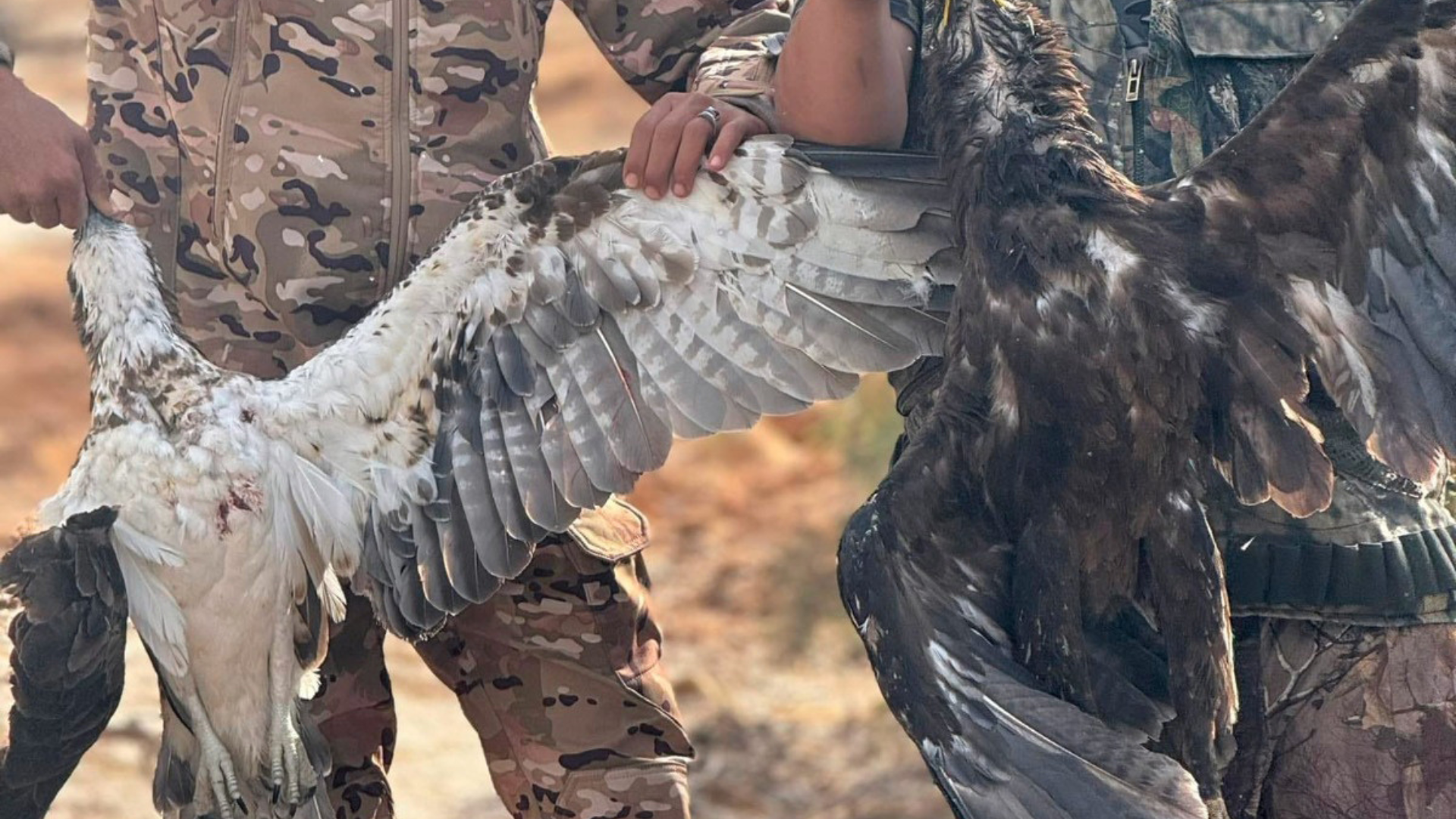
Moustafa’s deleted post from 2 Dec 2024, in which he exhibits an Osprey (left) and a Steppe Eagle (right); both are illegal to hunt in Egypt. The Osprey is also illegal to hunt in Europe. Photo: Facebook.
A tradition gone rogue
Prof Mark Falzon stressed that “There’s a profound social element to hunting, but it’s not just that. We shouldn’t underestimate the extent to which this is a passion.”
As Malta joined the EU, limits on catch have prompted Maltese hunters to travel abroad, and Egypt is one of their favourite destinations.
BirdLife Malta CEO Mark Sultana underscored the motivation for hunters to seek foreign hunting grounds: “They go to Egypt and other countries to kill birds because they can do it in much larger numbers.”
The reliance on social media also emerged as a critical enabler for hunters.
Researcher Bertie Ferns highlighted how hunters connect across borders and share photos online, comparing trophies and exploits.
“Maltese hunters can see what Egyptian hunters are doing,” explained Ferns. “They ask: ‘Why are we getting punished […] when the birds can, in a few days’ time, go to another country where it’s almost like a free for all?”.
Prof Falzon highlighted the short-sighted approach of EU policies, since mobile species migrate without observing borders.
“There is no point in protecting a mobile species at point A and killing it at point B,” he said, adding that hunters pose a threat to bird species resident in Egypt, in addition to migratory ones.
Despite a growing environmental crisis, Egyptian hunting regulations remain poorly enforced.
Haytham Ibrahim, conservation director at Nature Conservation Egypt (NCE), said the hunting decree would require “a comprehensive overhaul”.
A recent decree (No. 204), issued by Egypt’s environment ministry on 27 August 2024, expanded tourist hunting permissions to the New Valley and Sohag.
“This is a catastrophe,” said Khaled al-Nubi, executive director at Nature Conservation Egypt (NCE), “the oases [in the New Valley] are among the most delicate ecosystems on the planet – a haven in the vast desert for migratory and resident birds.”
Ibrahim explained that “the oases sustain agriculture and dates; a collapse in one part affects the whole.” He blamed tourism companies.
Asked to explain, Egypt’s environment ministry did not respond.
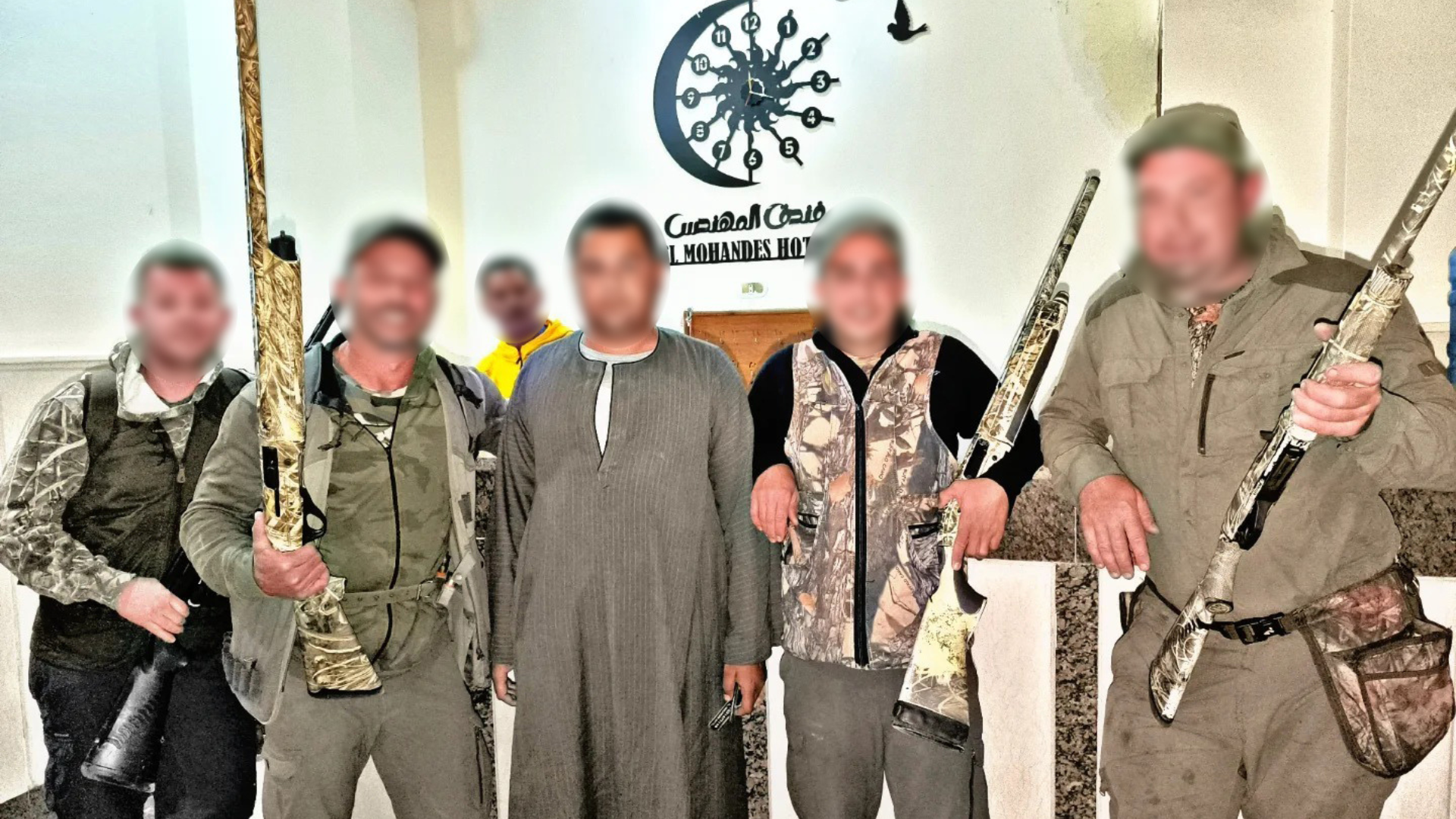
A local hunting guide posing with Maltese hunters in Egypt’s New Valley. Published on 27 November 2024. Photo: Facebook.
‘It’s about ego’
Amr Hady, the founder of Sobek Planet for Ecotourism and Training, is a passionate conservationist who operates in Lake Nasser.
“The problem isn’t just the number of birds they [the Maltese ] kill, it’s what they’re killing. I’ve seen hunters bragging about their Egyptian vulture kills,” Hady said. “It’s not about food; it’s about ego.”
“We may not notice the impact today,” warned Hady, “but removing even one species can disrupt the entire ecosystem.”
Ibrahim, the NCE conservation director, explained that “birds are transboundary messengers,” as they facilitate vital processes like seed dispersal and pest control.
Mounir* – a fisherman turned conservationist – now leads birdwatching trips in a modest, sun-worn boat drifting across the Nile in Aswan. After years spent powerlessly witnessing the actions of Maltese hunters, he decided to embrace ecotourism.
“The Maltese hunters are a different story,” sighed Mounir with a frustrated tone, “at first, they would hunt just a few birds here and there, but then it became relentless. They’d kill everything in sight – geese, migratory birds, even donkeys.”
He recounted an incident in which Maltese hunters had fired at animals on an uninhabited island. Despite local attempts to mediate, Mounir said, “They left the island stripped of wildlife.”
When asked if he ever confronted the hunters, Mounir chuckled knowingly. “Oh, we tried,” he said, “but most, including their bosses, told us to ‘stay in our lane’”.
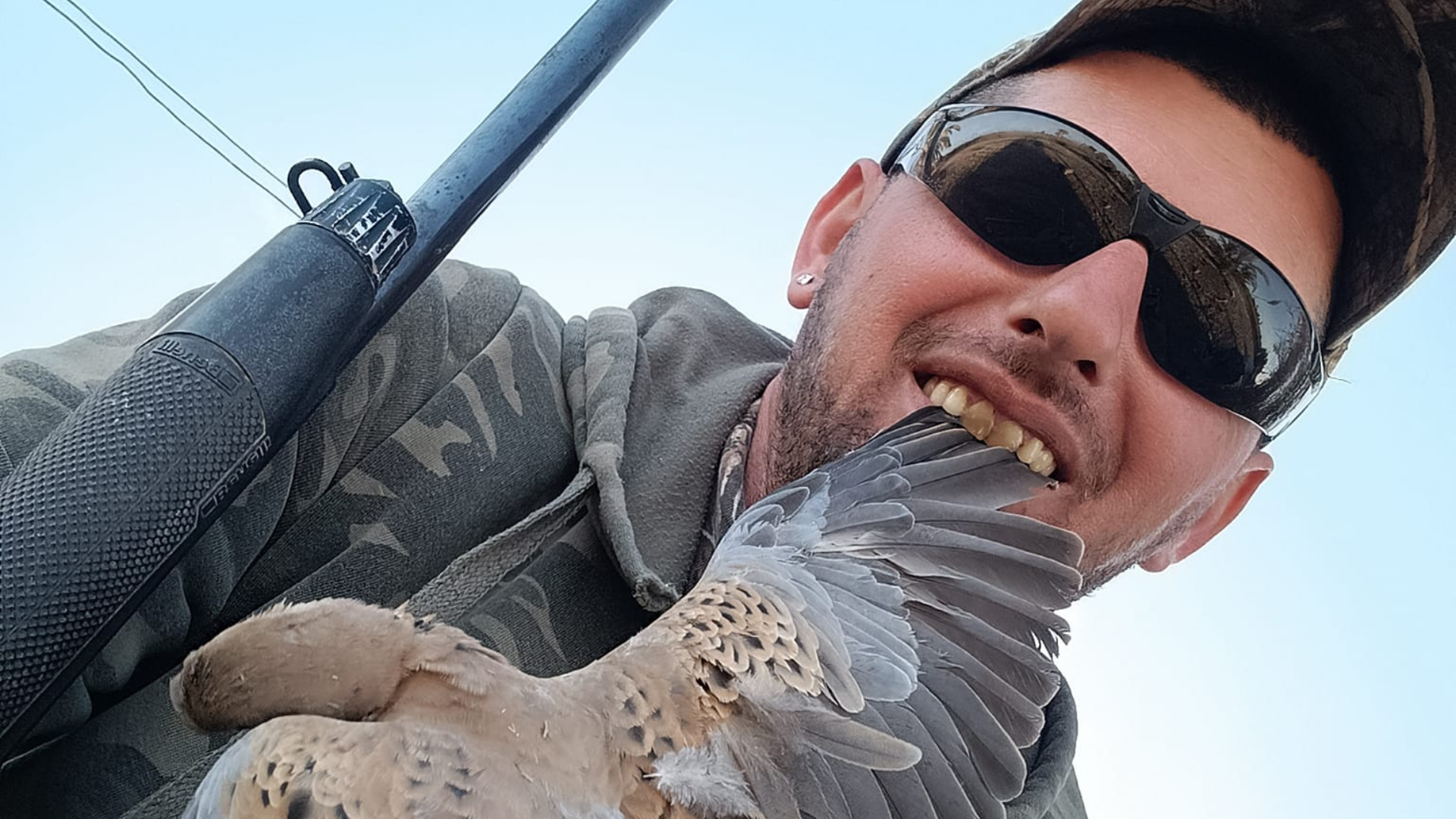
Maltese hunting trip organiser Joseph ‘il-Cooper’ posing with the carcass of a turtle dove hunted in Fayoum. Turtle doves are illegal to hunt for tourists in Egypt. When contacted, he said he was not aware tourists were not allowed to hunt these birds in Egypt. Published on 1 February 2023. Photo: Facebook.
‘Not our problem’
Malta’s Wild Birds Regulation Unit (WBRU), the government entity responsible for confiscations, also could not provide updated data on birds trafficked from Egypt.
WBRU seemed to lay the blame on Egyptian authorities for not doing enough to counter poaching ‘at source’.
“We need to arrive at a point where protected birds are not killed abroad in the first place. To ensure that such illegalities do not happen […], a proactive stance is necessary,” Richard Lia, head of WBRU, said.
The president of the strongest hunting lobby in Malta, Lucas Micallef, declined to comment.
Journalists also reached out to another hunters’ organisation, Kaċċaturi San Ubertu (KSU), whose president, Mark Mifsud, replied: “We abhor the killing of protected birds wherever that occurs and whoever commits such crime.”
He acknowledged that some Maltese hunters visit Egypt to hunt but criticised the focus on Malta, arguing that “Malta has strict laws to penalise such crimes, unlike countries like Egypt, where massacres are the rule.”
Mifsud described illegal hunting in Arab countries as “massacres shown on social media which dwarf any potential impact on both local and migratory bird populations that Maltese hunters allegedly commit in Egypt”.
However, unlike Maltese hunters who pay thousands of euro for each hunting trip, the Egyptian hunters’ livelihood often depends on migratory birds like quails, which are then sold in local markets.
Khaled al-Nubi (NCE) said, “Poverty is a major driver of mass bird hunting in some villages… for many, these birds represent a crucial source of income and protein.”
EU conservation projects: ‘a waste of money’?
Efforts to address the poaching and smuggling of migratory birds by Maltese hunters across North Africa and Europe face challenges on multiple fronts.
While the EU invests millions of euro in conserving these species, their efforts are undermined by European hunters exploiting poor law enforcement in non-EU countries like Egypt.
“It does not make sense that in Europe, we’re trying to safeguard the bird, and then we allow Europeans to go to Egypt and hunt those birds,” BirdLife Malta said, arguing that European citizens should be permitted to hunt abroad species that are protected in Europe, regardless of whether foreign laws allow it.
Safeguarding Europe’s migratory birds comes at a steep cost. Turtle doves, for example, are globally classified as “vulnerable” species and protected under the LIFE programme, which is the EU’s funding instrument for the environment and climate action. Yet turtle doves are among the favourite prey of Maltese hunters.
This video by one of the local hunting guides states that 1,500 Turtle doves were killed by Maltese hunters before noon.
Over 8,000 registered hunters in Malta are collectively allowed to shoot around 1,500 turtle doves in one season under Maltese law. Yet a single hunting party in Egypt can kill far more than that on one trip.
In a Facebook video posted on 9 December 2019, Maltese hunters and a local hunting guide assert that they killed 780 turtle doves on that day, most within 90 minutes.
Khaled al-Nubi (NCE) warned: “If we allow reckless hunting to persist without science-backed regulation, we’re not just losing species; we’re dismantling the delicate balance that sustains us all.”
*Pseudonyms have been used for these names for security reasons.

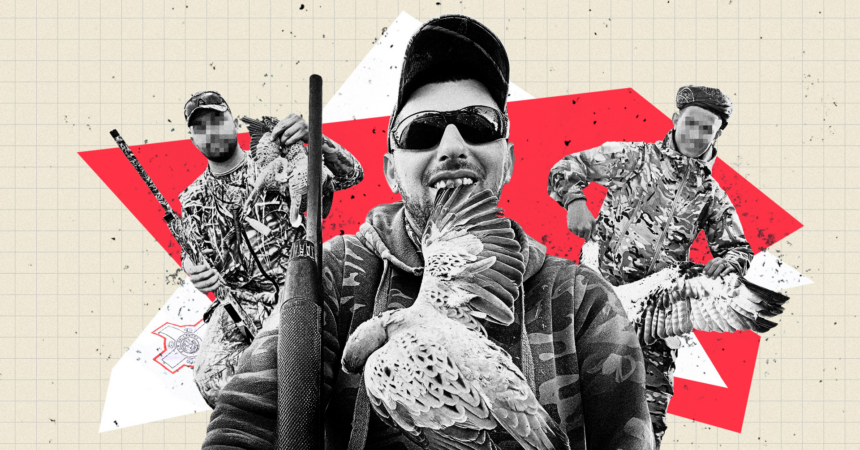
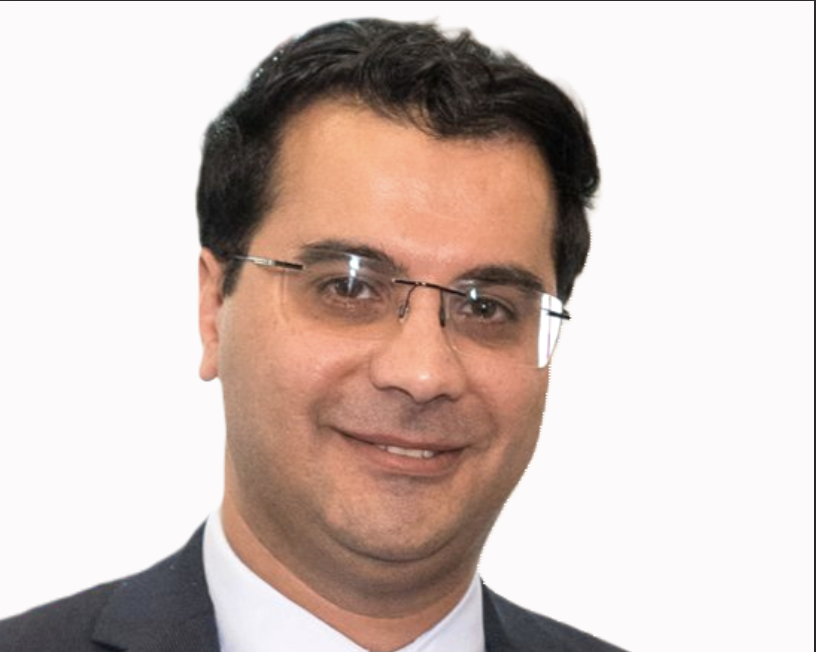











These aren’t hunters, just idiots. There was a reason why even the knights of St. John didn’t allow locals to hunt.
Agree with you 100%
So what is Egypt doing about it, besides collecting money from these hunters?
One of the dirtiest cities is Cairo and they have the gall to call others dirty
Atrocious, scandalous and shameful. I don’t regard this bird-killing hobby as a passion. This is not killing birds to put food on the table but merely as personal trophies and egos as described above. Bird hunting, such as that described here, should be banned in all countries and heavy penalties (prison even) dished out to all who break such laws regardless of whatever local or foreign countries such deeds take place.
This investigation exposes a shocking contradiction: the EU funds bird conservation while European hunters, particularly from Malta, slaughter the very species these funds aim to protect. The scale of illegal hunting in Egypt, with Maltese hunters reportedly killing everything in sight—including endangered birds—highlights the failure of both local and international enforcement. How can Europe justify conservation efforts at home while turning a blind eye to its citizens fueling ecological destruction abroad? This isn’t just hypocrisy—it’s a systemic failure demanding urgent reform.
This was a very disturbing read.
Mankind can be so wretched.
What about the Egyptians making a good buck from this business ?
stop rage baiting. All parties are making a buck you think these hunters keep all these birds they sell them on the black market. Most of the time to maltese business men.
Bustards!
Perhaps, like in some places in Africa, the poaching hunters needs to be the hunted…
This article brought tears to my eyes. The systematic destruction of life, the greed, the corruption enabling these massacres makes me lose hope that humans can stop the degradation of our planet s environment. Poor birds. may they fly unmolested in heaven away from violence….I hate these hunters that do not control their lust for killing.
Do we have to give Malta a bad name wherever we go?
Great investigative journalism, but a very difficult read.
Mankind can be so wretched.
Disgraceful
Unfortunately there isn’t much that can be done. As Egypt is not part of the EU, they can decide to be as corrupt and unreliable regarding the protection of birds.
But Malta, could add higher enforcement on cargo being imported from Egypt for example. Or higher fines, maybe even jail time if cargo is found with illegal birds.
EU could contact Egypt and work together on more enforcement in these areas where there is illegal hunting.
Shameful
They resemble Trump’s mob.